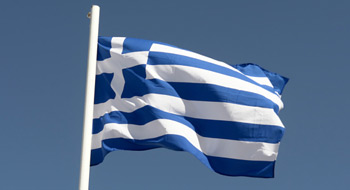

Originally from our sister publication, Advisor.ca.
Thirteen years after the advent of the European common currency, the Eurozone has seen its first credit default by a member. The long-term and short-term debt of Greece was downgraded to “selective default” by Standard & Poor’s Ratings Services yesterday.
“We lowered our sovereign credit ratings on Greece to ‘SD’ following the Greek government’s retroactive insertion of collective action clauses (CACs) in the documentation of certain series of its sovereign debt on Feb. 23, 2012,” the agency said in a release.
These collective action clauses effectively bound all bondholders of a certain series of debt to new payment terms if enough creditors agreed to the terms. Changing the terms of an existing bond is, de facto, a default on the original terms.
“In our opinion, Greece’s retroactive insertion of CACs materially changes the original terms of the affected debt and constitutes the launch of what we consider to be a distressed debt restructuring,” the release explained. “Under our criteria, either condition is grounds for us to lower our sovereign credit rating on Greece to ‘SD’ and our ratings on the affected debt issues to ‘D’.”
Under Standard & Poor’s criteria, exchange offers that feature the issuance of new debt with less-favorable terms than those of the original issue without adequate compensation are considered to be debt restructuring.
“We believe that the retroactive insertion of CACs will diminish bondholders’ bargaining power in an upcoming debt exchange,” the release said, pointing out that such an exchange offer was launched the day after the CACs were inserted.
Greece now faces one of two fates: either bondholders will accept its debt exchange offer, or they will reject it. The decision is expected March 12.
If the debt exchange goes ahead as planned, the ratings agency would lift the selective default rating, and reinstate Greece’s CCC rating on long-term debt.
“In this context, any potential upgrade to the ‘CCC’ category rating would inter alia reflect our view of Greece’s uncertain economic growth prospects and still large government debt, even after the debt restructuring is concluded,” the agency said.
If the exchange is rejected, S&P says Greece would probably face an outright payment default, due to its inability to access market funding.
